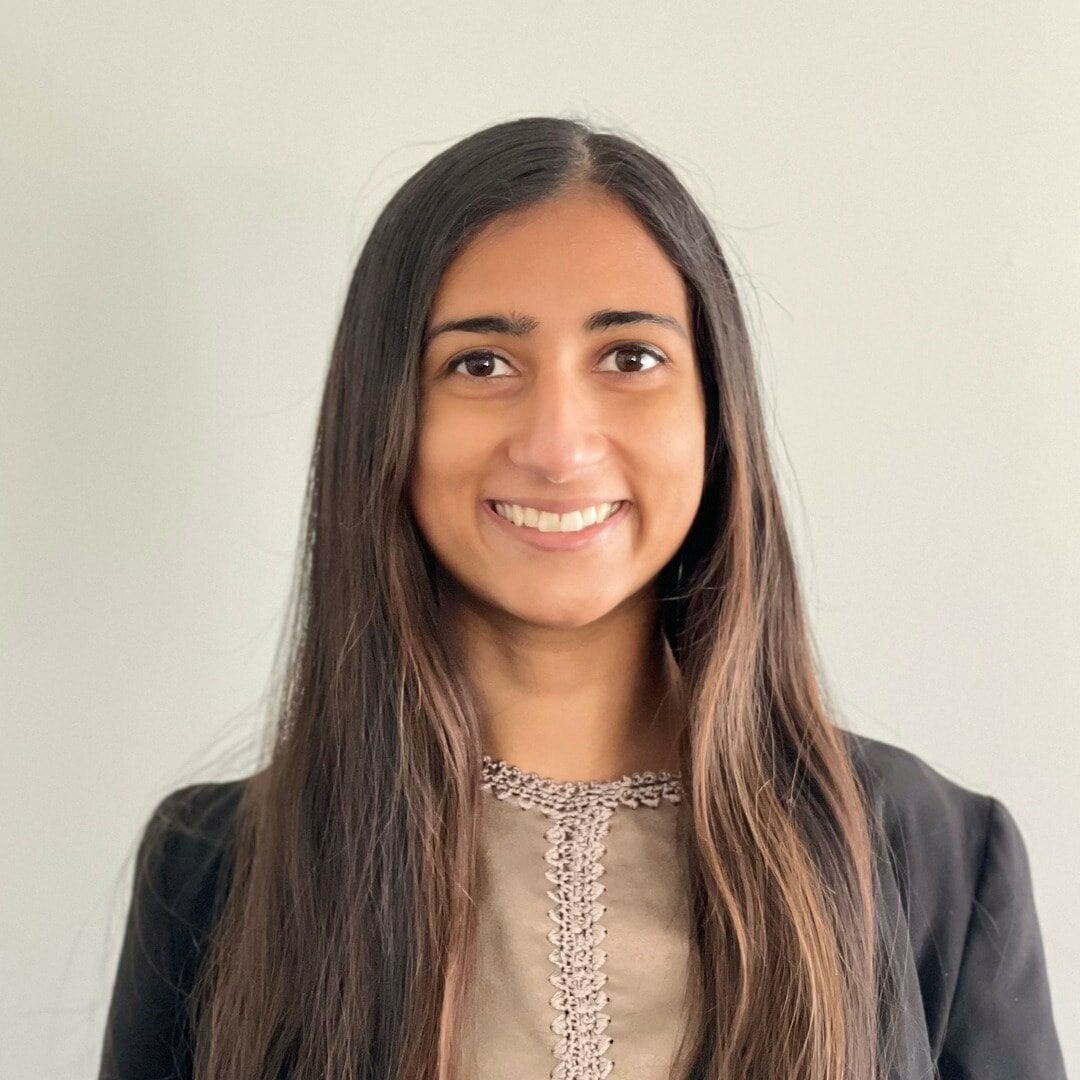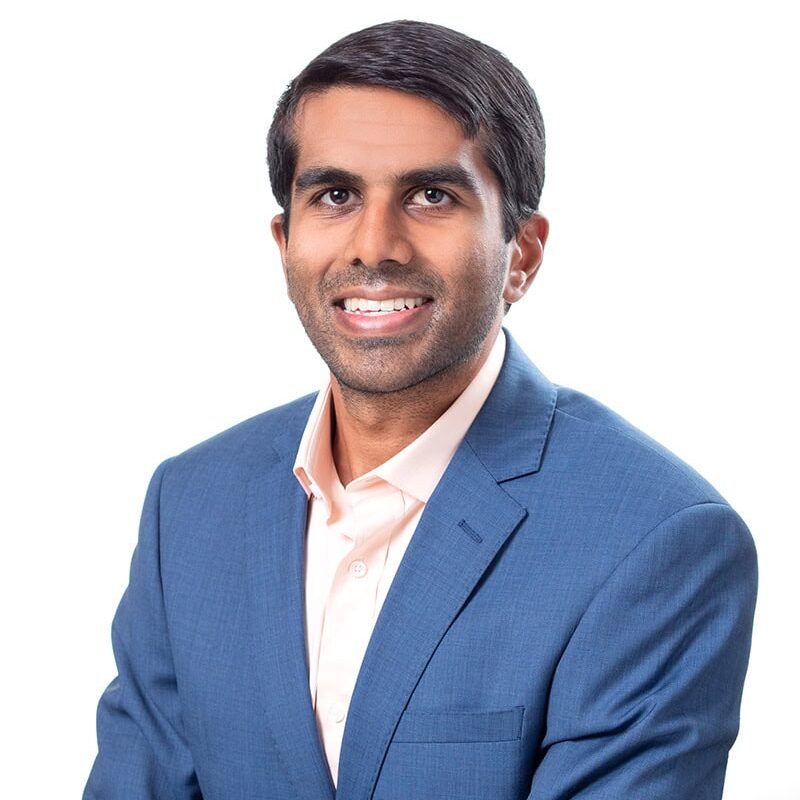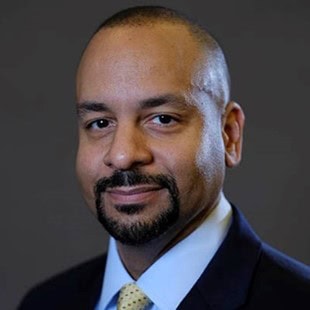Q: Why did you decide to present your research, “Evaluating the Efficacy of a Mental Health Triage Program at a Primary Care Center for Refugee Health,” at SGIM23?
A: I decided to submit our abstract because it brings to light an issue that is so rarely discussed. In 2022, 29,000 refugees resettled in the US, double the previous year, according to the United Nations Refugee Agency. Refugees must go through an often lengthy and complicated process to find placement in the US. In addition, they are often exposed to war, torture, discrimination, and social alienation throughout the migration process, which puts them at high risk of mental health disorders, including post-traumatic stress disorder (PTSD) and anxiety. We need to think of ways to advocate for this vulnerable population and link them to the appropriate care they deserve.
Q: How was your experience?
A: It was a really valuable experience working with our mentor, Dr. Rachael Truchil. She is the director of the Refugee Clinic at the Penn Center for Primary Care (PCPC) and has years of experience working with this patient population. Her guidance was instrumental in making this project happen, and I admire her persistent efforts to advocate for her patients. My co-authors, Divya Saini (a medical student at Penn) and Emily Rider-Longmaid (now a fellow in adolescent medicine at CHOP), contributed to the data collection and put together the poster presentation. It was a dream all-female team!
Q: How did you conduct your research, and what were your findings?
A: We conducted a retrospective chart review of patients at the Refugee Clinic at PCPC to identify patients referred to our integrated mental health triage program between 2018-2021. Penn Integrated Care (PIC) provides care for patients with mild to moderate depression and anxiety and coordinates the linkage of care for patients with a higher level of need with community providers through an initial triage visit to determine eligibility. From 2018 to 2021, 218 patients were seen at our clinic, most commonly from Afghanistan, Ukraine, Nepal, Burma, and Guatemala. Of these patients, 17% screened positive for a mental health disorder, most commonly PTSD and depression. Of those patients, 10% were referred to PIC with noted barriers for referral that included patient refusal or inability to perform complete evaluation due to language barriers. Of the patients referred, triage was completed for 73% of patients (the most common barriers to completing triage included the inability to reach patients, insurance issues, and language barriers). Our study reaffirmed that there is a high burden of mental health concerns among this patient population. It also showed that despite the availability of integrated mental health services, there were significant barriers for refugee patients to receive this service. To best serve this vulnerable population, we need standardized assessment and referral tools and more streamlined processes for improved linkage to care.
Q: Do you plan to continue your research in mental health programming for refugees?
A: I plan on working on a larger project that evaluates the concept of integrated primary care and how we can use this model to optimize care for refugee patients. The World Health Organization has highlighted several proposed benefits of integrating mental health services into the primary care setting, including reducing healthcare costs, increasing the likelihood of positive outcomes, and improving access to mental health services. Studies have shown that migrant patient populations prefer to receive care in the community due to the perceived stigma associated with specialized mental health services, so this model serves as a great opportunity.
Q: You are also co-chief of the University of Pennsylvania’s Refugee Clinic. How did you become interested in global healthcare, specifically serving refugee populations?
A: I have always been passionate about global health, and I am part of the global health track at Penn. I was born in India and raised in Singapore and New Jersey, so traveling from a young age made me inherently interested in different cultures and gave me early exposure to disparities in healthcare. I also have many family members in global health, including my mom. I have worked abroad on public health surveillance and access to care projects in India, Ethiopia, and Botswana. The refugee clinic is a natural fit for me and one of the most rewarding parts of residency. I have had the privilege of getting to know some of my patients on a deep level, and I can think of no higher honor than to be a part of their journey and to help facilitate their new beginning in this country. Their tenacity and resilience inspire me to be the best clinician and advocate I can be.
Q: What are your professional goals after completing residency at Penn Medicine?
A: I am currently applying for a fellowship in infectious disease. I am particularly interested in antimicrobial stewardship and the emerging global health threat of resistance. I am committed to advocating for vulnerable global populations throughout my future career.
Frontliner
Job Position & Institution
PGY-3 Internal Medicine at the University of Pennsylvania





